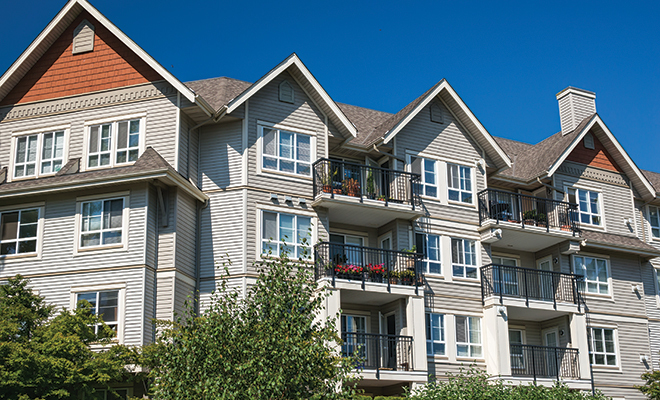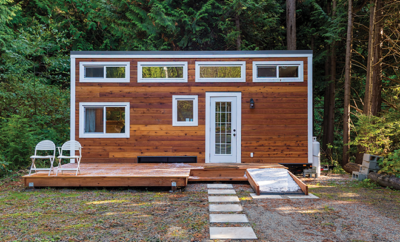
College Housing: Buy vs. Rent?
Most parents save for their child’s college expenses, typically tuition and books, but living expenses don’t seem to get as much attention. That is, until parents are faced with writing a big check to a landlord.
Before this happens, parents should investigate whether buying or renting is their best route. Owning the property your child lives in can be beneficial in many ways.
•Financial gain: Your property may provide some tax benefits, all the while increasing in value and netting a nice profit when the time comes to sell.
•Security: You choose where and how your child lives and there is no need to move each year or wonder where to store clothes and furniture over breaks.
•Stable expenses: Instead of being locked into a landlord’s rental increases, your property’s loan is fixed. Plus, there is no worry about chasing down security deposit refunds.
•Real-life experience: Your child will benefit from the responsibility of home ownership, from paying the bills on time to collecting rent from roommates.
All good, right? Maybe…let’s turn the tables below.
•Financial loss: Some college towns don’t have good property appreciation rates, so you may not recoup those four years of expenses when you sell.
•Security: If your child decides he/she doesn’t like the college, you are stuck with an investment you may not need or want.
•Stable expenses: In addition to the mortgage payment, you must factor in taxes, homeowners association fees, insurance and regular maintenance such as mowing the lawn or snow blowing, not to mention unexpected repairs.
•Real-life experience: If your child rents to other students, he/she must learn how to act as a landlord. That means dealing with delinquent payments, paying bills on time and general oversight, which may translate into added stress for you.
A thorough review of all of the above is necessary to make sure the investment makes sense for you.
You can check the Zillow Real Estate Research internet site for a breakeven horizon, or the “time it takes for the accumulating costs of renting a unit to exceed the costs of having purchased the residence from the get-go.” They have produced a table that ranks U.S. cities by the number of enrolled students relative to the total population so you can see the corresponding college town you are interested in.
If you choose to purchase, meet with your accountant and attorney to decide the best method of ownership, whether owner occupied or a pure rental. You can even create a family limited liability company.
One option for your loan is a FHA “Kiddie Condo” loan. Your student has title to the property and you get a minimum down payment. It helps students qualify by allowing them to co-borrow with a relative. Down payments can be three percent and they usually have lower interest rates than other investment properties. You may also choose the non-owner occupied loan, which acts more as an investment loan with conventional financing. The property is classified as a second or vacation home, with 20 percent down but fewer paid points than on a rental property. Another option is an interest-only loan with a lower monthly payment than a fully amortized loan.
When your child has graduated and it’s time to sell, you have the option to exchange it, through a 1031 exchange, for another piece of property if your next child is ready to attend a different college. You also may opt to continue to hold the dwelling for investment purposes.
Since the real estate crash, property values have increased but rent has increased at an even faster pace. With high rents and low interest loan rates, this could present a once-in-a-lifetime opportunity for parents who in normal times would prefer to rent. Demand for rental housing is usually high in college towns and owning your child’s residence may give you an investment advantage.
Say you buy a condo for $150,000. Your total cost of ownership for the first year may be $20,000, including the down payment, loan payments, insurance, utilities, new appliances and some maintenance costs. The following years’ expenses will most likely be around $12,000 if you consider minor maintenance. So over four years, it may cost you $56,000 to own. Now compare that to a rental fee of $650 per month, which would equal $31,200 over the four years. But the good part is you can subtract any rental income from your costs. If you charge a roommate $650, you are now only paying $24,800 for your child’s four years. And hopefully, when it comes time to sell, the market will have appreciated and you can realize a profit on your investment. HLM
Sources: forbes.com, thefiscaltimes.com and zillow.com.
Should I Buy?
Use this monthly worksheet to help determine if buying is your best option:
Loan Payment (Principal & Interest):
Mortgage Insurance:
Taxes:
Homeowner’s Association Fee:
Insurance:
Maintenance/Repairs:
Utilities:
Monthly Expense:
Less Roommate Rental Income:
Final Monthly Expense:







